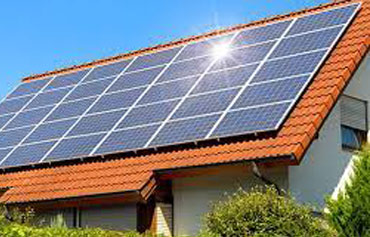The solar panel grants in Scotland form one of the core elements of the government effort in Scotland to foster use of renewable energy and minimize carbon emission in the country. The purpose of such grants is to obtain solar energy that could be affordable to home owners, landlords and businesses. Nevertheless, not all properties are automatically going to be eligible to receive such grants and it is extremely important to know what kind of properties can be obtain such grants to anyone wishing to make an application. Being aware of whether your property is fitting the criteria or not can save you a lot of time as well as help you utilize the available financial support all the way.
In Scotland, the grant to install the solar panels is usually done on the lines of most of the schemes of the Home Energy Scotland funded by the Scottish government. These grants are structured to serve a very broad band of properties but there are certain eligibility criteria attached to them. The energy efficiency and the possibility to install the solar panels and receive the significant effects of energy savings and decrease in the amount of carbon are one of the major conditions determining the eligibility.
The biggest category, which qualifies to get solar panel grants, is residential premises. This comprises of the normal detached homes, semi-detached properties, terraced dwellings and flats with appropriate roof area. In detached and semi-detached houses, a south- facing roof with minimum shade condition will be an optimal requirement to install solar panels. These properties tend to qualify, since they have the capability of producing a lot of sun energy, which helps in reducing the electrical bills paid as well as less use of the non renewable energy sources.
Terraced houses are also included though they may be sometimes based on the orientation of the roof and the closeness of other buildings that would cast a shade to it. This is sometimes complicated when it comes to flats or apartment buildings. Communal use of solar panels may be installed on the roof in case the flat has a roof of its own or the management of the building would be kind enough to accommodate such an initiative. There are grant schemes that can cater to such scenarios so that flats can enjoy solar energy by collective means or sharing systems. Particular flat owners may however have a harder time to get the qualification unless sharing the whole building or given special permission by the management.
Social housing is another significant group of property that could be deemed as an eligible property. Social landlords and housing associations throughout Scotland are regularly able to gain grants toward the installation of solar panels to enhance the energy efficiency of northern Scottish housing stock. The installation of the solar panels at the social housing will not only save the energy expense of the tenants but it will also match the government intention of enhancing sustainability and reducing carbon density in the social housing. A considerable number of social housing schemes are supported in terms of specific funding streams, which is sometimes allocated more, in terms of grants, than are available to a general homeowner.
Solar panel grants may also be obtainable on commercial property but they can usually be in different schemes or need separate applications. Workable rooftops in small businesses, civic centers, and non-profit organizations can get grants that seek to popularize renewable energy among businesses. The eligibility requirements of commercial properties are usually centered on the magnitude of the installation, the prospective energy reductions, and the determination of the applicant to partake in the process of sustainability.
Other than the type of property, other elements that are used to determine eligibility include conditions concerning the current energy consumption level and insulation rating of a property. To illustrate, the government is focused on bids on properties where the current energy efficiency ratings are poor which may include places with a high Energy Performance Certificate (EPC) ranking. The solar panel installations will mostly benefit the properties with lower EPC ratings and will hence enjoy more chances at unlocking grants. Moreover, homes, which have already implemented or intend to implement further insulation or energy efficiency procedures and install solar panels, can also encounter fewer problems with acquiring the finances.
Another consideration is on the ownership of the property. In grant schemes, the property owner is usually a precondition on which the applicant should be serving as the property owner or being provided with express permission by the owner to set up solar panel installation. The average tenant is not able to directly request such grants, but the landlord can make an application relating to his/her tenants to enhance the energy efficiency of his/her property. This condition will make sure that money invested in the solar panel will be of advantage to the people in charge of the property and maintenance.
The place in Scotland may determine eligibility, as well, because of the difference in the availability of local programs and funding distribution. Supplementary grants or incentives Local councils or regional energy projects may be available in some areas to complement the national schemes to install solar panels. Such local initiatives commonly focus on a particular group, like the rural setting or energy poverty hotspots, to promote adoption of greater amounts of renewable energy in underserved regions. Home owners in such locations may get more financial support or priority in access to grants.
To get grants on solar panels, you have to follow a proper evaluation and inspection to ascertain that the house is in possession of all the requirements. This will often cover site survey conducted by an experienced handler which will include the assessment of the appropriateness of the roof, shading aspects, as well as structural building stabilisation. The grant application includes the results of the survey that show the anticipated cost savings and energy production. Such a professional evaluation can be used to ensure that the grant money is used, effectively, on the properties where solar panels will have the biggest effect.
Applicants also have one challenge; they are required to select accepted suppliers and installers that fall in particular standards as asserted by the government or grant administrators. This guarantees quality and reliability of solar panel systems installed under the schemes of grants. Home owners and managers are advised to engage quality firms that understand the grant process well to prevent all this.


